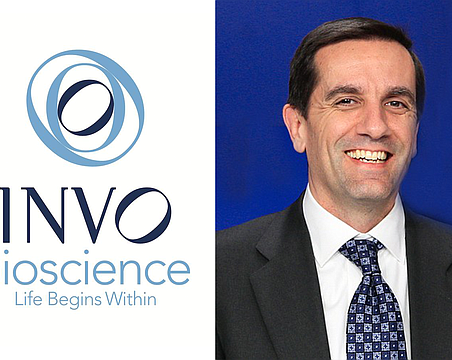Sow your Own
An annual Tampa Bay Partnership confab in Sarasota doesn't forget the little guys who drive the regional economy.
By Francis X. Gilpin
Associate Editor
The executives from the big New York bank wanted to see one of Atlanta's notorious rush-hour traffic jams for themselves, albeit at 5,000 feet. They were trying to figure out where - Tampa or the Georgia capital - to move more than 2,000 financial services jobs from New York City.
The five o'clock flyover helped to push Chase Manhattan Bank into the waiting, incentive-filled arms of Hillsborough County and the state of Florida. A bad motor vehicle tie-up in Brandon is usually preferable to the best commuting day around the Perimeter of metro Atlanta.
"Make sure you don't be like that," Del Boyette, a corporate relocation adviser at Deloitte & Touche USA LLP, jokingly scolded Tampa Bay area business leaders, economic development officials and politicians gathered at Sarasota's Ritz-Carlton hotel May 26-28.
In between beachfront sunsets and museum tours, more than 125 attendees at the Tampa Bay Partnership's sixth annual leadership conference pondered the national profile of their region.
They talked about how to avoid duplicating Atlanta's failure at mass transit while brainstorming for new ways of replicating the skill of their perennial rival at luring corporate headquarters from the north.
Yet the partnership, the Bay area's 10-year-old facilitator and marketer of regional cooperation on economic matters, didn't neglect small business.
"What Matters Most?" was the conference theme. Conference organizers partly answered that question by setting aside one panel to discuss small business problems.
Still, the emphasis was on bigger enterprises. There was some of the customary talk of job-training grants and tax abatements for large employers coming from somewhere else, sprinkled with concern about the vanishing suburban tracts for corporate campuses.
A Manatee County small businessman wondered where the incentives were for the tiny startups born locally that everybody claims are the backbone of the Bay area economy.
Frank Grywalski, chairman and chief executive of Decision Management International Inc. in Bradenton, says Florida's government inducements appear to run 80% for outsiders versus 20% for retention of existing companies. "Switch it around," says Grywalski, "or make it 70-30."
George Gordon, president and chief executive of Tampa's Enporion Inc., moderated the small-business panel that featured Grywalski and others who operate manufacturing or technology companies that depend on product or production breakthroughs to stay competitive.
Enporion runs an Internet-based procurement marketplace for the energy industry. Gordon says his biggest problem is finding skilled help within commuting distance of Enporion's Harbour Island headquarters.
Gordon, who came to Tampa from San Jose in 2001, had to fall back on his Silicon Valley contacts to staff the information-technology section of Enporion. The company still uses a California-based IT crew, he says.
"Those people exist here," says Gordon. "But they were hard to find and there weren't enough of them."
There still aren't enough of them, according to Grywalski.
"We talk a great game," says Grywalski, whose 11-year-old company develops compliance software for businesses regulated by the U.S. Food and Drug Administration. "But we do nothing, or very little."
Gordon is this year's president of the Tampa Bay Technology Forum, a non-profit advocacy group for local tech entrepreneurs. "My goal, through TBTF, is to make sure we have lots of technology jobs in this region," says Gordon. "I might need one of those someday."
For now, though, there is an imbalance between Florida college graduates and the in-state companies that need them to thrive.
"What are we doing wrong?" Gordon asked. "What are we doing that they don't know about our jobs and we don't know about them?"
Grywalski agreed with Gordon that there are talented computer scientists and engineers coming out of Florida universities. But they are wooed away by out-of-state companies because the graduates don't know about the tech jobs in the Bay area.
"One of the key things we have to do here is make sure that we, the small companies, are visible to the universities," says Grywalski, "and the universities to us."
The Tech Forum co-sponsored a tech transfer conference last month in St. Petersburg, one of the first of its kind in Florida.
Gordon and Grywalski were pleasantly surprised by what they saw. The conference was set up with the Florida Research Consortium so university laboratories and other researchers could try to interest venture capitalists and experienced tech business owners in funding the commercialization of their findings.
"I think they've got some incredible things going on at our universities," says Gordon. "Not many people know about it."
Grywalski says events such as the St. Petersburg tech transfer conference should help change that perception. "I was amazed at what we have here," he says of the conference. "Without that, I never would have known."
Along with the workforce disconnect, the other longstanding obstacle to entrepreneurial success in the Bay area is the lack of capital.
"If you do a business plan and it says you need a million," says Gordon, "double that and double that."
At another recent tech conference, this time in Sarasota, Gordon says the problem of capital stood out starkly. "There were about 30 of the most impressive young companies I've ever seen assembled in one place, with some really great technology," he says. "They had one common theme: They were all undercapitalized."
Grywalski, who previously worked in Boston, had to return to Massachusetts for another round of funding in order for Decision Management International to ride out a couple of rough years for software developers in the early 2000s.
"We had to go back to our original investors in Boston because nobody around here wanted to do what we wanted to do," says Grywalski.
That was, give Decision Management International an intermediate-sized second helping of working cash.
The company needed between $2.5 million and $3 million. When local companies can get investment replenishment, Florida venture funds seem to either want to provide small infusions or $10 million-plus, the tech panelists say.
"If you need substantial financing, you find yourself going to the Boston area, Silicon Valley or, occasionally, Atlanta," says Grywalski.
According to Decision Management International's Web site, Grywalski's company took venture funding three years ago from a trio of Boston area investment firms - Halpern, Denny & Co., MedEquity Investors and BancBoston Ventures.
However, there are advantages to opening a small business in the Tampa Bay area. They typically revolve around the cost of doing business.
Wayne Johnson, vice president of sales and marketing at Brooksville industrial sign-maker Accuform Manufacturing Inc., says more products are trucked into Florida than are made here. So a lot of tractor trailers leave the state empty, Johnson says.
That can provide a nice opportunity for savings for Johnson's company and other local manufacturers, which can negotiate substantially lower freight rates over land.
Clyde G. Nixon, chairman of Sun Hydraulics Corp., agrees. His Sarasota company makes high-performance hydraulic cartridge values and manifolds. "Our competitors are in the Midwest and their rates are significantly higher," says Nixon.
Gordon and Grywalski concluded the panel discussion with an appeal to the elected officials in the audience: Do what you can to reduce business litigation in Florida.
"I've been involved in frivolous lawsuits with early-stage companies, generally on intellectual property or perceived intellectual property," says Gordon. "And they can be very debilitating. They can be extraordinarily costly."
Added Grywalski: "Take a look at the cost of going and saying, 'I'm going to win.' It just makes no sense at all. OK, I'm going to prove my point, but I might miss a few payrolls. I'm not going to do that."
"You can't fight on principle in an early-stage company," says Gordon.





